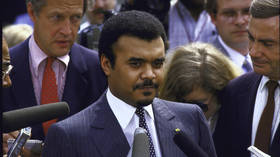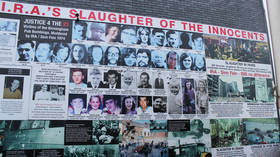UK MOD facilitated bribes to Saudi prince in arms deal – Guardian

Senior British Defense officials knowingly continued highly “anachronistic” payments to the son of a former Saudi defense minister while withholding key evidence from a probe into the deal, UK court documents have revealed. The practice reportedly continued even after it caused a major scandal under Prime Minister Tony Blair.
The emails and memos that shed light on the arrangement, many of which are marked confidential and sensitive, were revealed as part of a bribery case that concluded in London last week. The payments related to the so-called al-Yamamah arms deal from the 1980s, which was the largest weapons export sale in modern British history. The recipient of the funds was Prince Bandar bin Sultan Al Saud, the son of Saudi Arabia’s defense minister at the time, who played a key role in negotiating the contracts.
The Guardian newspaper exposed government involvement in the affair in 2003 and the link to the prince in 2007 and on Monday reported on the newly revealed documents in detail.
Money from Ministry of Defense accounts was sent to Saudi Arabia quarterly starting in 1988. The Serious Fraud Office (SFO) launched an investigation into the payments in 2004, targeting arms giant BAE. Two years later, however, Blair’s government quashed the probe, claiming that continuing it would harm national interests.
British officials were well aware that the money was being used to cover the prince’s personal expenses, such as his private jet, according to the new evidence. Stephen Pollard, a senior military official, called the arrangement “increasingly anachronistic” in one memo, but argued that stopping the payments would “run the risk of displeasing key Saudis.” In 2008, the MoD implemented a new less conspicuous mechanism for transferring the funds.
The trial in the UK was the second attempt by the SFO to prosecute two individuals, Jeffrey Cook and John Mason, whom it charged with paying bribes to several Saudi royal figures. The first case was thrown out by a judge after it emerged that the Ministry of Defense had failed to provide key evidence. The Southwark Crown Court acquitted both last Wednesday.
Mason, 81, and another person, former British Army officer Ian Foxley, have said they intended to sue the government. Mason is claiming unfair prosecution. Foxley is the whistleblower who sent evidence of alleged corruption to the SFO. He claimed he had to flee from Saudi Arabia due to the threat of arrest after reporting his concerns to superiors, who allegedly informed Riyadh about him.













